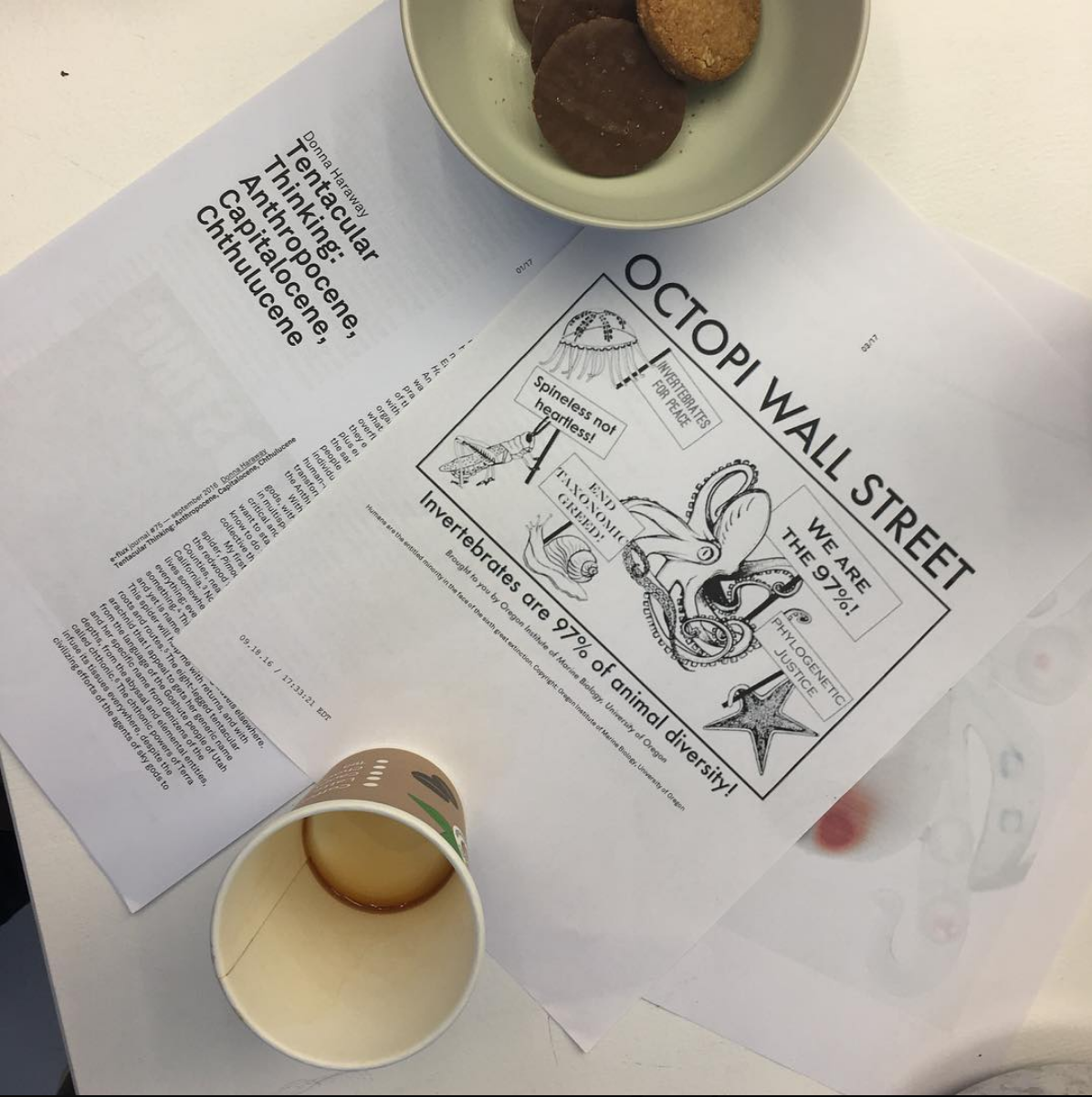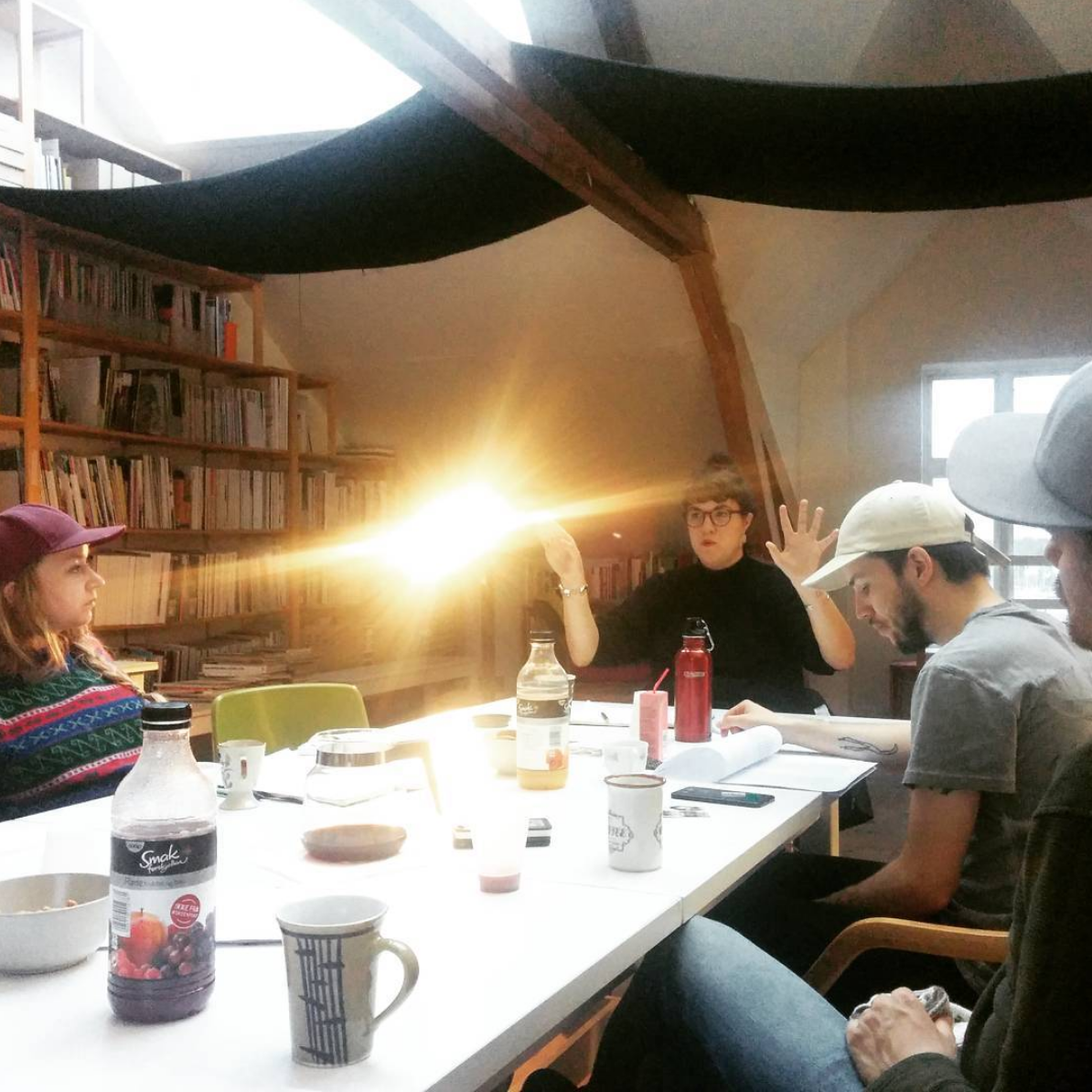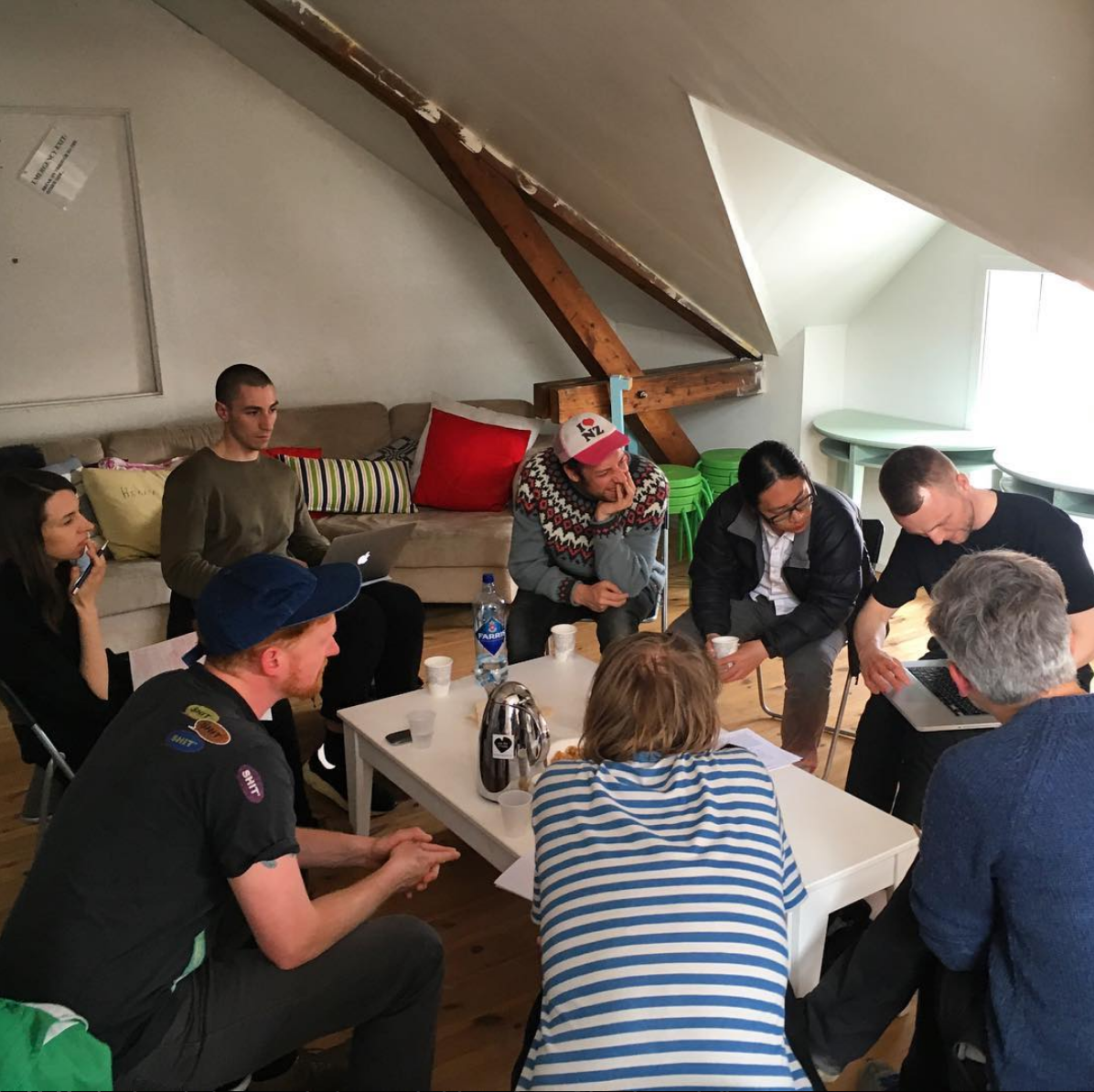For the visitors – Ina Hagen (Louise Dany), Maiken Stene (Velferden), Andreas Knaag Danielsen (Galleri CC), Julie Niemi (The Barn), and Ayatgali Tuleubek (Podium) – each of whom was invited to lead one of the reading group sessions, the brief was to choose a text or two that would reflect the way in which the initiative they are involved with was or is operated. Hence, to generalise, the chosen articles can be interpreted as mirroring ideologies and attitudes prevalent in the self-organised culture of our times.
As the group considered different approaches to self-organising, there were two notions, namely ‘care’ and ‘friendship’ that kept surfacing throughout the discussions and range of reading materials. The notion of friendship initially came up as a subject matter in the first reading session, notably when addressing the writing of Céline Condorelli. And the idea of care entered soon after via Antony Huberman’s text titled Take Care that was suggested to us by Conversation Pit #2 leader Ina Hagen, co-founder of Louise Dany, an artist-run initiative in Oslo. In what follows I’ll take a closer look at these two terms, both separately and as they coalesce. Also, a related third concept is added, that is ‘networks’, which made an appearance in the Conversation Pit via Common Practice research paper Practicing Solidarity written by artist and researcher Carla Cruz.
By means of friendship humans increase their vital capacities. Consequently, the fact that numerous self-organised projects are born out of friendship and regard it as an operational condition hardly comes as a surprise. Friendship can be defined as an agreement of mutual trust and support between equals, at least in principle. Though not based on utility or pleasure, it may be activated when facing lack and need. All the while, it is a fragile structure that requires continuous maintenance and renewal. As such it resembles a process, rather than an outcome.







